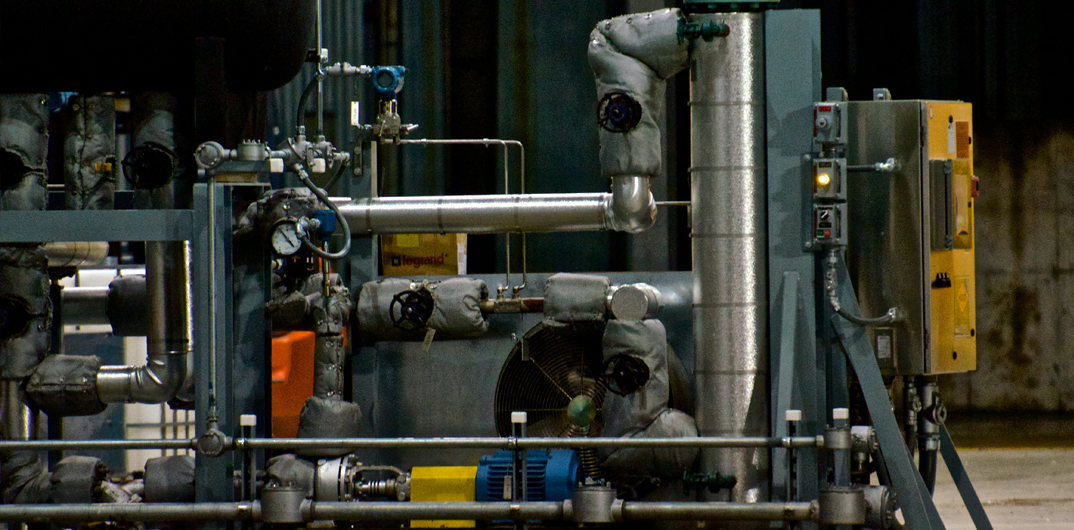248
Within six months, scientists believe they may be close to completing a nanotechnology catalyst to allow affordable, marketable petroleum product using nanotechnology to convert natural gas to liquid form.
[caption id="attachment_18826" align="ali

Courtesy Photo
Shown above is the thermal skid, which is part of the Fischer-Tropsch reactor. Courtesy Photo
Nanotechnology leads way in natural gas conversion process
previous post



